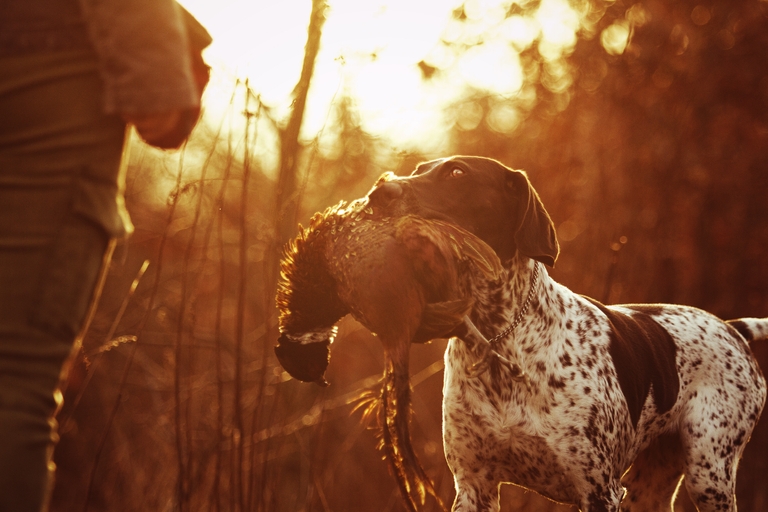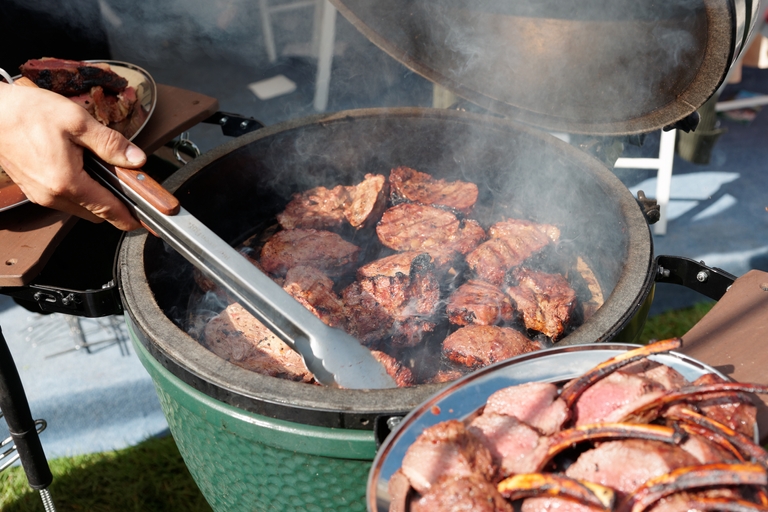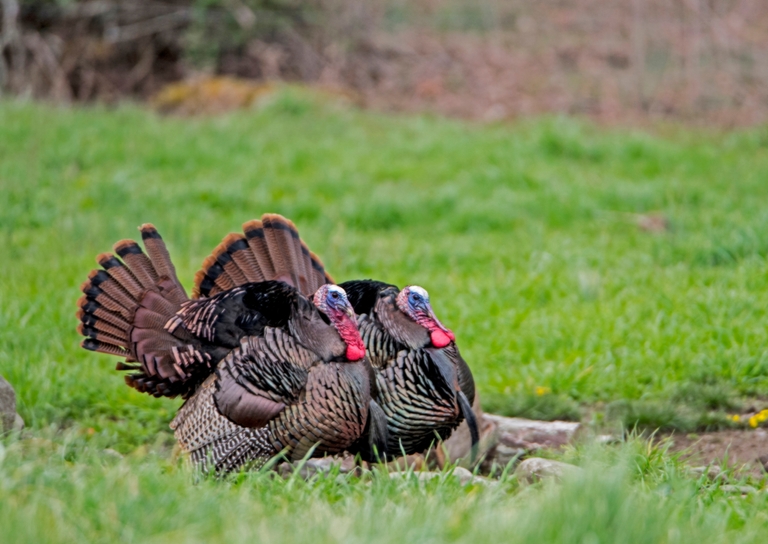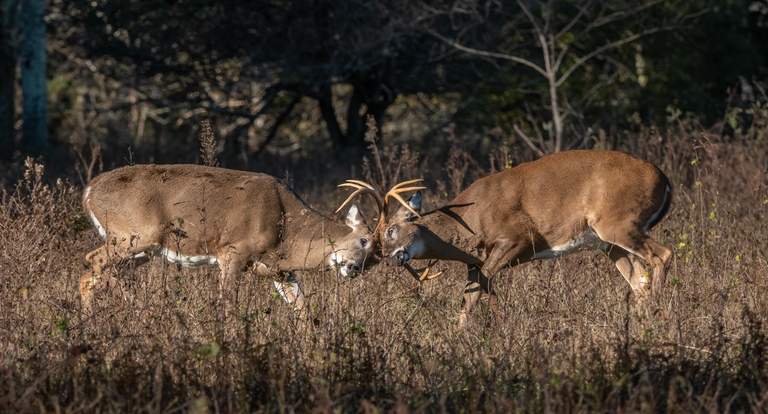Top 6 Turkey Hunting Safety Tips For a Successful Season
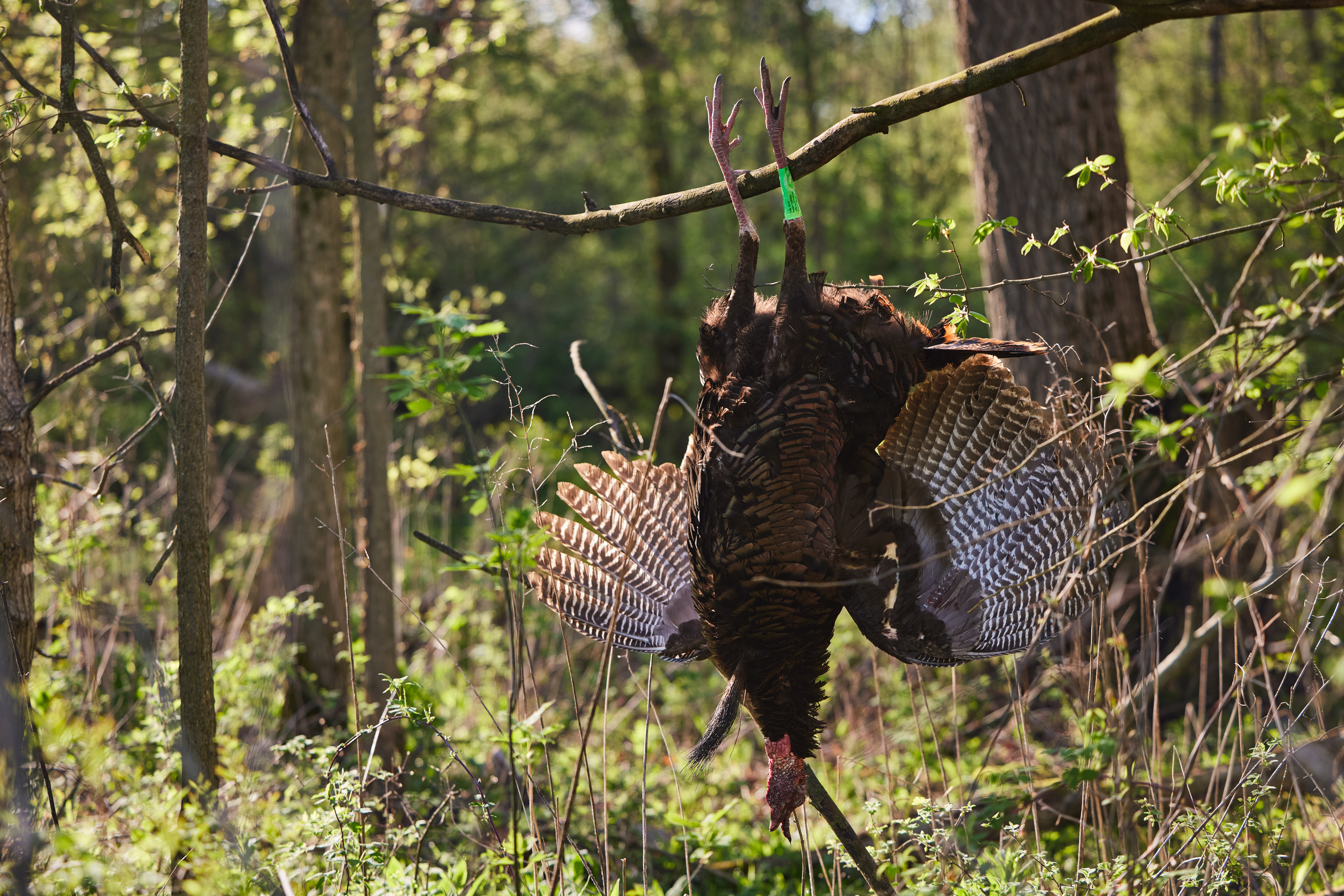
Turkey hunting can be all or nothing.
Some mornings, you can have big toms barreling towards your sweet music; other times, it's nothing but silence.
Whatever the conditions, one thing never changes: the safety practices you employ to keep you and your hunting companions safe.
Here are six failsafe tips for a fun, safe, and successful season.
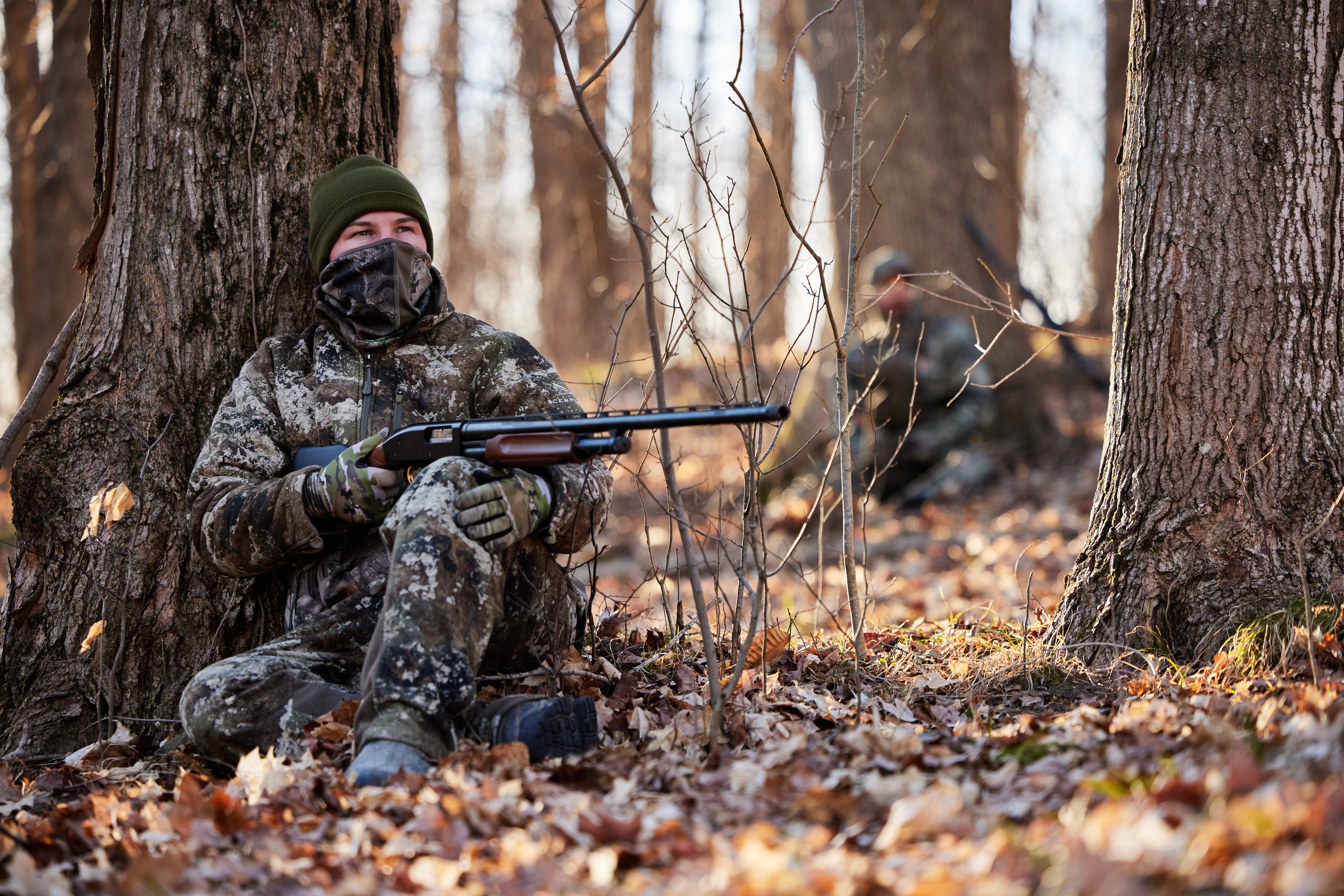
6 Tips For Turkey Hunting Safety
At Hunter-Ed, we believe that safety must be the priority for every hunt. Yes, it's also a priority to bring home the game you're after – but without safety best practices, you could suffer serious injuries (and miss out on that wild game you pursue).
While there are plenty of things to keep in mind when in the field, start with these six!
1. Know Your Surroundings
Understanding your surroundings before you head out into the field is an essential step in your preparation. It will give insight into the fitness requirements, necessary tools for your kit, distance from the nearest help or emergency facilities, and more.
Additionally, sharing your determined zone with friends, family, or local authorities is essential in an emergency.
Watch out for potential hazards and danger zones, including:
- Steep inclines
- Bodies of water
- Dense vegetation
- Uneven ground
- Rocks and fallen trees
Understanding the hazards before heading out on your hunt means you will be more prepared and able to navigate the zone with excellent proficiency and safety. Falls tend to be the most common injuries and are usually entirely avoidable.
Use Resources to Learn the Area
Speaking with mentors, experienced hunters, or local forestry officials to get a first-hand look at the lay of the land can be a great way to extract further insights about a designated zone.
E-scouting with an app is also a popular, efficient, and accurate strategy hunters employ to gain insight into a particular area. Apps like HuntWise provide mapping and forecasting, including 3D scouting, to show how challenging a terrain will be.
Navigation tools are also essential to safety gear, meaning you can find your way back safely.
2. Use Proper Gear
Once you've packed out and are in the field, you want to be sure that your gear will hold up and do what it's designed to do, as it's usually a long trek back to your truck.
Safety gear on a turkey hunt includes:
- Safety clothing: Thick, durable fabric can protect against abrasions from thorns and sharp sticks and help thermo-regulate body heat in the cool. Always remember to wear blaze orange on top of your camouflage gear to enhance visibility, mitigating the risk of accidents.
- A pair of sturdy boots: Make sure they have the right traction to minimize the risk of slipping and even protect against snake bites or other hazards.
- Glasses and ear plugs: Quality protective glasses can protect against fragments and debris. Additionally, quality ear plugs preserve auditory capacity and protect against any damaging effects from shotgun noise.
- Sun Protection: Even on overcast days, the sun's UV rays can cut through and cause skin damage. Invest in quality long-sleeved shirts, wide-brimmed hats (blaze orange if available), and a pair of sunglasses to wear when not taking the shot.
- First Aid and Hydration: A first aid kit, preferably with a hunter trained up with first aid and adequate water, are literal lifesavers out in the field where help can be a while away.
While it takes a little extra preparation to make sure you have these crucial items, it's worth it!
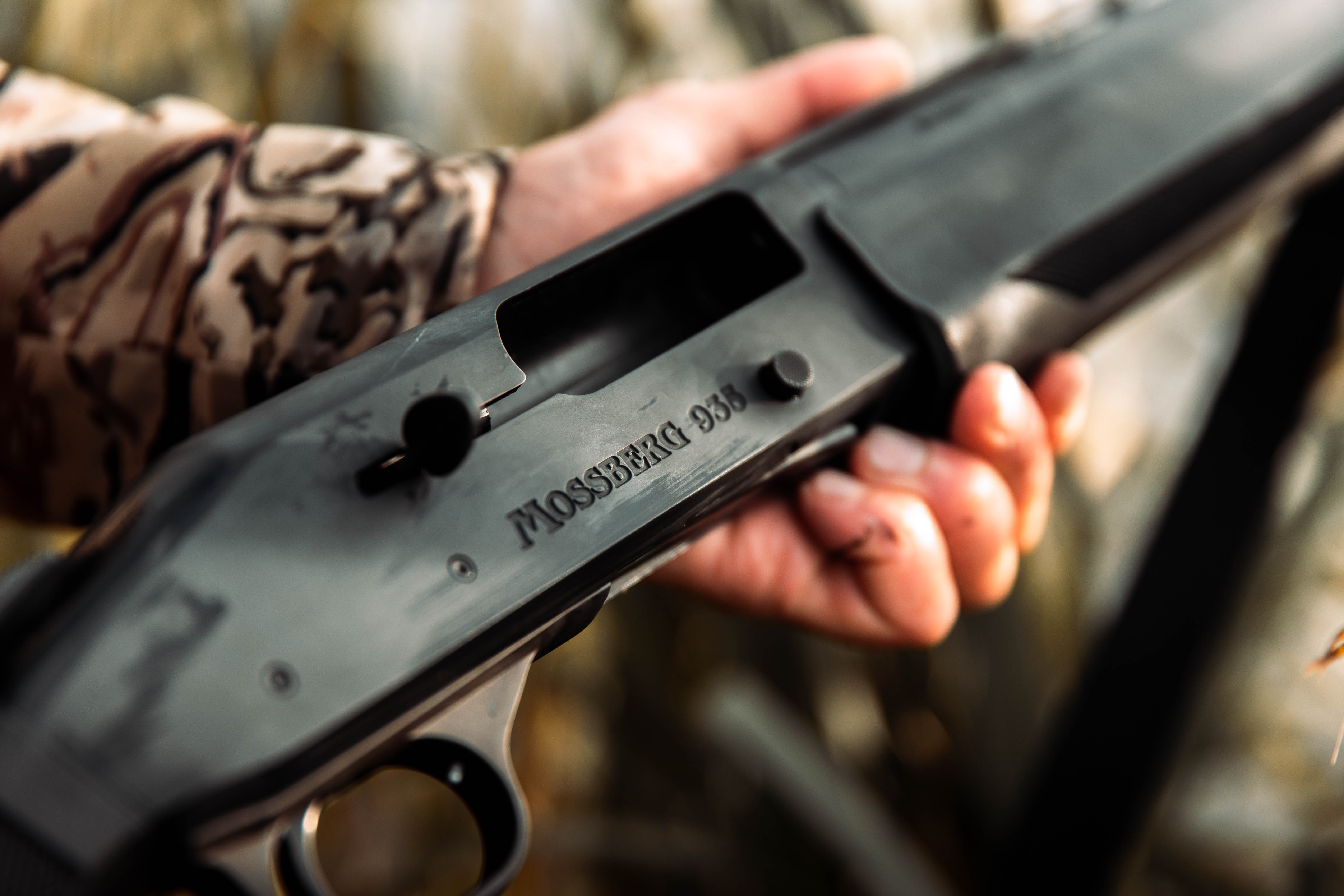
3. Practice Firearm Safety
Whether hunting with a shotgun or rifle, the fundamentals of firearm safety remain the same.
Treat every gun as if it's loaded, always point the muzzle in a safe direction, and never place your finger on the trigger until you're ready to shoot.
Due to the use of camouflage and the nature of turkey hunting, you must be aware of your target and what lies beyond it to prevent accidental shootings. Check, double-check, and triple-check your target, and take a moment of reflection to think to yourself, "Is this a turkey I'm looking at?" before taking your shot
Doing this will help you overcome the adrenaline and excitement of the moment.
4. Communication with Other Hunters
Turkey hunting is commonly done in small groups and often in areas with fellow hunters, meaning communication is essential to maintaining safe firing zones and knowing the right time to shoot. However, even if you're hunting alone, other hunters could be hunting near you.
If you're hunting with a partner, establish a plan including intended zones, signals, and communication channels. If you're separating, establish meeting zones and times, develop emergency procedures, and carry backup communication devices such as satellite phones in case of faulty signals.
Then, if you come across other hunters in the field, be respectful, share information, and inquire about their intended zones to avoid
5. Be Mindful of Wildlife
The areas that turkeys are most likely to inhabit, including rivers and streams, oak and grassland, pine savannas, and openings such as forest clearings, are also high-traffic areas for a wide range of other species.
Be respectful of these areas and avoid disrupting them unnecessarily, as some species, including snakes and wild boar, are unlikely to back down when backed into a corner. Bites from insects – such as a spider bite – while seemingly innocuous, can quickly evolve into an infection, so be prepared and know the signs.
6. Weather Awareness
Inclement weather can lead to anything from hypothermia to dehydration, so being prepared can help mitigate these serious conditions.
Check the forecasts, pack appropriately, check the wind speed, and dress appropriately to ensure your body temperature stays optimal. If it's predicted to rain, pack your waterproof gear and try not to get wet, as rain and cold wind can trigger hypothermia – it doesn't have to be below zero.
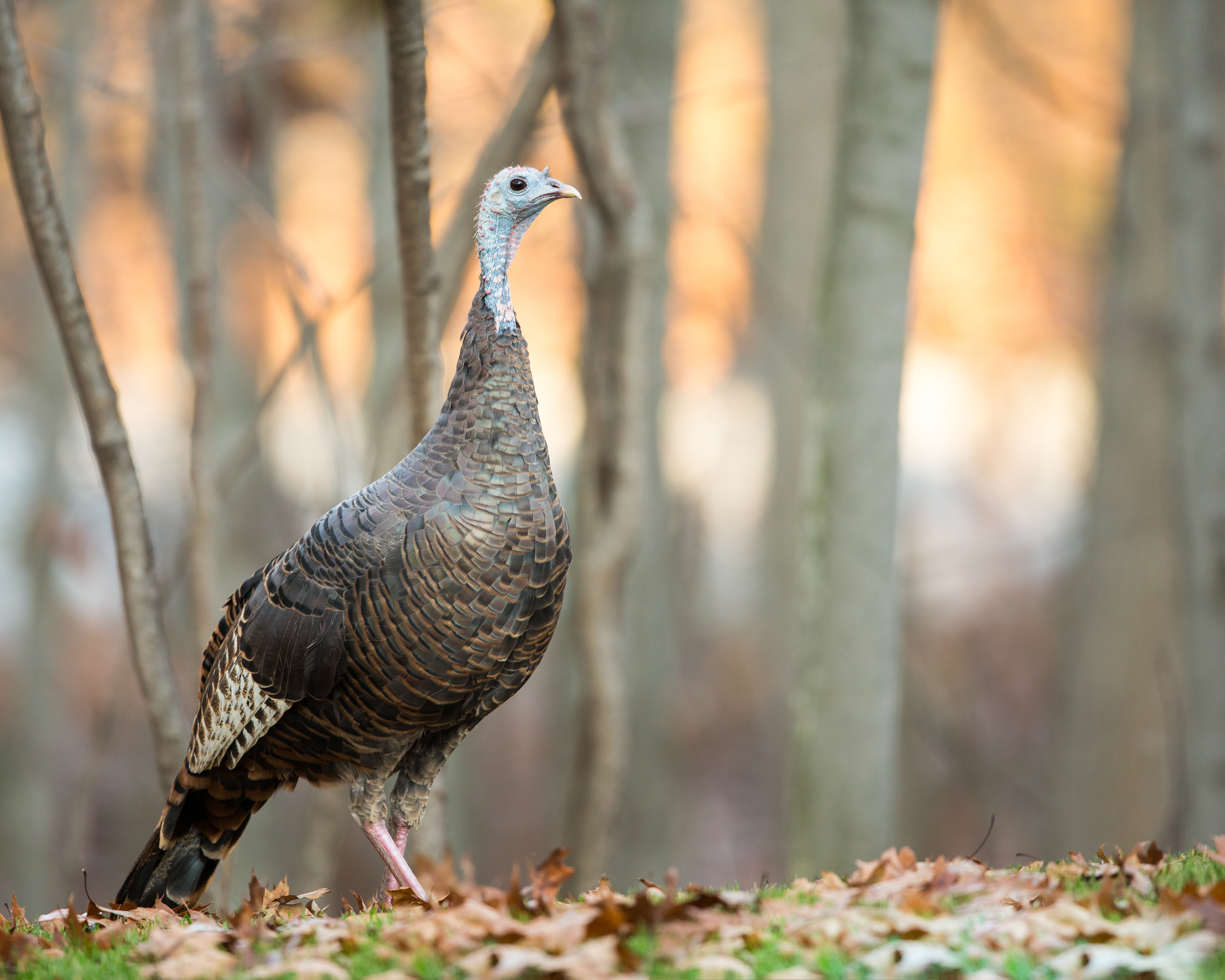
Take Turkey Hunting Season Head on With a Hunter-Ed Course
Firearm incidents are still the most significant danger when turkey hunting. We want to change that.
When out in the field, you're responsible for your own safety and the safety of fellow hunters, dogs, friends, hikers, and even native flora and fauna that you may encounter. So, one of the best things you can do to stay safe when turkey hunting is to take a hunter education course.
Hunter-Ed is here to help you have a safe and successful turkey season! Our online courses cover what you need to stay safe in the field, including firearm safety, how to dress appropriately for the elements, how to be visible to other hunters, and how to hunt safely with other hunters in the area.
So, before you head out to get that gobbler, find the course for your state and get safety certified!

